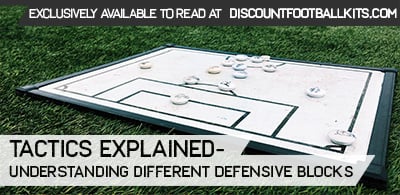UEFA have revealed their plans to deal with potential racist attacks at Euro 2012 in Poland and Ukraine.
They are giving referees the power to abandon matches or at the very least set events in motion to involve the local police, should any incidents occur.

The Premier League Referees’ Chief Mike Riley, himself a referee for 13 years in the Premier League, has detailed how this process is there to protect players. It comes days after Italian striker Mario Balotelli threatened to walk off the pitch if he had any racist abuse directed towards him.
The refs will look dimly on this though, and the ruling is that any player to leave the pitch as a result of misbehaviour of fans will be booked for their trouble. Instead UEFA want players to first approach the match officials who will be able to take action.
Riley says that the idea behind this is to get the player who is suffering abuse to come to the referee before taking any rash action themselves. This will underline that the referee is still in control of the game and will attempt to make the situation more comfortable for the player in question. It is unclear whether this means that the game will have to be paused for a while until those responsible are evicted, or if it means there could be a full-scale abandonment to a later date.
The 12 referees that will be officiating at the Euros are the best of the best. They’ve been in referee kit for a long time and have all the necessary expertise at their disposal to handle these situations.
This is the best strategy UEFA can have. Although they can rest in the knowledge that at the training grounds the players will be safe; the real fear is that a number of home fans will judge players by the colour of their skin, instead of watching their skills in a football kit.
The flip side of this argument is, of course, that it is impossible to prevent all forms of racist attack. If there is no overt sign of racism in the form of banners or certain salutes, there is nothing to say that a racist comment won’t be discreet.
A snapped comment to players when placing footballs on the corner flag, a whispered word behind players sat in their tracksuits on the substitute bench, even an ambiguous sign that isn’t overtly racist but has prejudiced undertones. All these could be a problem.
Footballers are professionals, they will understand that to be a player for an international team in a high-profile tournament will come with certain negative aspects. Racism should never be one of these, but it is still a sad fact of the game that it sometimes is.
Off the pitch, the players will have the presence of mind and sensibility to simply ignore all such comments. On the pitch though, with tempers and emotions running high in pressurised situations, one such comment may be a step too far. And simply complaining to an official might not cut it.
Image Rights: thetelf









